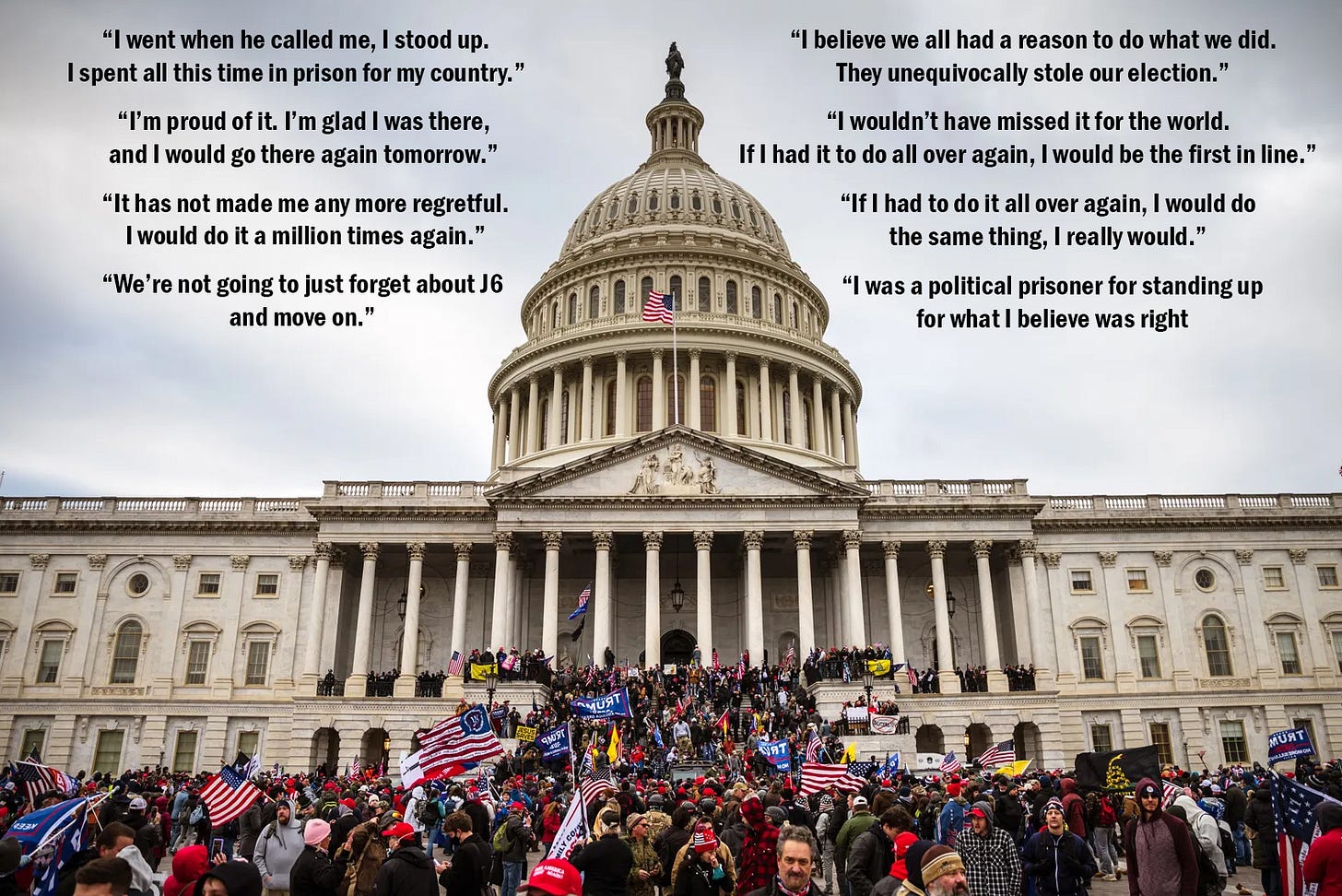Pardoned Capitol Rioters: ‘I Went When He Called Me’
PARDON TRACKER REPORT: Documenting the Statements, Activities, and Networks of the Pardoned Capitol Rioters.
In the three months since President Donald Trump signed sweeping pardons for the individuals that participated in the attack on the U.S. Capitol on January 6, 2021, several of the individuals that received pardons have made public statements, and the majority of these pardoned Capitol Rioters have proclaimed their loyalty to Trump, insisted that they ha…



